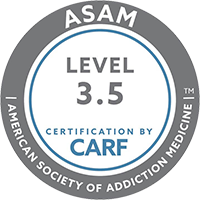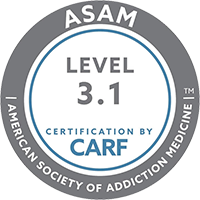With fentanyl and synthetic opioids becoming more pervasive in Kentucky and across the country, there has never been a more dangerous time to be in addiction.
Last year, 2,250 Kentuckians died from drug overdoses – a 14.5 percent increase compared to the year prior, according to the Kentucky Office of Drug Control Policy’s 2021 Overdose Fatality Report. More than 70 percent of those deaths were linked to fentanyl.
Nationally, more than 107,000 overdose deaths were reported between December 2020 and December 2021.
This Overdose Awareness Day, Addiction Recovery Care (ARC) is honoring the lives that have been lost to substance use – but they also want people to know that recovery is possible.
“The lives we’re losing to drug overdoses are mothers, fathers, sisters, brothers, uncles, aunts, coworkers, neighbors and friends,” said Tim Robinson, ARC’s founder and CEO. “Overdose Awareness Day is a day for us to mourn and reflect on these lives that have been lost too soon. But it is also a reminder of the incredibly important work we are doing to support and lift up those in our communities who are struggling with addiction.”
Gentry Wells came to treatment at ARC in April 2021, after a decade-long struggle with addiction and multiple overdoses.
“I can probably count four or five times where Narcan has been the direct result of me coming back to life,” Wells said. “Drugs today are not what they were even four to five years ago. It’s all this fentanyl, and when it comes to that stuff, the next one you take may be very well your last. We’ve seen that time and time again in the last year or so.”
Fortunately, Wells entered treatment before it was too late.
“I was always a hard-working, fun-loving guy. Addiction and drugs took a lot of that away from me,” Wells added. “Today, I’m useful and helpful. I’m caring and compassionate. I haven’t been that guy for the last 10 years, and I really have to credit ARC and the people here for bringing that back out in me.”
Joshua Stephenson, who has been in recovery for 16 months, also entered treatment after overdosing on numerous occasions.
“I know several people who have passed away from overdoses. If I could say one thing to them, it would be that an overdose doesn’t have to be the end. Recovery is possible,” Stephenson said. “Addiction Recovery Care has not only given me my life back but has given me a chance at a life that I never thought I would have.”
As deputy coroner of Clark County, Neal Oliver has firsthand experience with drug overdose fatalities – and has noticed some alarming trends.
“When I first started as a first responder, overdoses weren’t as common in the community. Since the early 2000s there has been a major uptick as opioids, synthetic drugs, meth and fentanyl have become more widespread,” said Oliver. “One of the hardest jobs we have as a coroner and deputy coroner is those notifications. That’s a parent’s worst nightmare to get that knock on the door at 1:30 or 2:30 in the morning and have to sit there and tell them that their loved one has passed away due to a drug overdose.”
By offering “Treatment on Demand,” which prioritizes rapid access and transportation to care, ARC hopes to shape a future where fewer lives are lost to overdoses and more people reach long-term recovery.
“We are fortunate to have so many people in recovery who are willing to share their stories,” Robinson added. “People who are in the thick of addiction need to know that recovery is attainable. When you come to ARC, you have an entire support system waiting for you. You do not have to lose your life to this disease. There is always hope. You are never too far gone.”





